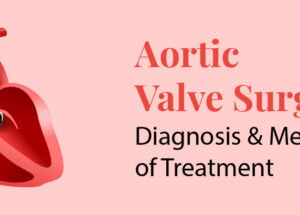Who is an Endocrinologist?
December 3, 2023

Who is an Endocrinologist?
An Endocrinologist is a specially trained doctor who diagnoses and treats hormone-related conditions such as diabetes, menopause, and thyroid issues caused by hormonal imbalances. Endocrinologists work to correct hormonal imbalances so that the body’s various systems communicate effectively.
Table of Contents
- Different kinds of Endocrinologists
- Diseases treated by Endocrinologists
- Understanding what Endocrinologists do
- Right time to visit an Endocrinologist
- Reasons to seek an Endocrinologist’s expertise
- Finding an Endocrinologist
- First visit to an Endocrinologist
- Education and Training of Endocrinologists
- Conclusion
- Frequently Asked Questions
Different kinds of Endocrinologists
An endocrinologist may focus on one or more endocrinology-related subspecialties, such as:
- Diabetes and Metabolism – Treating various forms of diabetes and other metabolic diseases like obesity is a specialty of an endocrinologist.
- Thyroid Disease – An endocrinologist is an expert in treating the wide range of disorders affecting the thyroid, the butterfly-shaped gland in the front of the neck.
- Endocrine Oncology – An endocrinologist is a specialist in endocrine system-related cancers. The study, diagnosis, and treatment of cancer are under the purview of oncology.
- Neuroendocrinology – In this area, the endocrinologist focuses on the relationship between the nervous and endocrine systems. For instance, they look into how our brain regulates our body’s hormonal activity.
- Pediatric Endocrinology – Treating children with endocrine disorders is the specialty of a pediatric endocrinologist.
- Gender Affirmation – Endocrinologists may be a key component of a multidisciplinary treatment plan for gender affirmation. One component of gender affirmation is sex hormone therapy, which endocrinologists can specialize in.
- Reproductive Endocrinology – Sexual function and fertility issues are potential areas of specialization for an endocrinologist. Another name for them might be fertility specialists.
- Endocrinology Nuclear Medicine – In this the endocrinologist focuses on treating some endocrine disorders, particularly thyroid disorders, with nuclear medicine.
Diseases Treated by Endocrinologists
An endocrinologist is qualified to diagnose and manage a wide range of endocrine system disorders. Some, but not all, of the conditions that endocrinologists treat, are categorized into the following groups in this section:
- Diabetes and metabolic conditions – An endocrinologist can create management and treatment programs for metabolic disorders. One of the most prevalent metabolic diseases is diabetes.
- Endocrine cancers and tumors – An endocrinologist is qualified to diagnose and treat endocrine tumors and cancers which are called after the gland or organ in which they first appear.
- Thyroid conditions – Any medical condition that prevents your thyroid gland from producing the appropriate number of hormones is referred to as thyroid disease, and endocrinologists are trained to treat it.
- Sexual development, function, and reproduction conditions – Reproduction, sexual development, and function are all influenced by several hormones. Endocrinologists can treat the following sex hormone-related conditions:
- Amenorrhea (absent periods)
- Erectile dysfunction
- Growth hormone deficiency and excess (acromegaly or gigantism)
- Gynecomastia (enlarged breast tissue in males)
- Hormone-related infertility
- Hypogonadism (low testosterone or low estrogen levels)
- Ovarian cysts
- Menopausal disorders
- Polycystic ovary syndrome (PCOS)
- Premenstrual syndrome (PMS)
- Sexual hormone disorders
- Calcium and bone conditions – Multiple hormones influence calcium levels and bone metabolism. Endocrinologists can treat the following conditions related to calcium and bone health:
- Hypercalcemia (high level of calcium in the blood)
- Hypocalcemia (low level of calcium in the blood)
- Metabolic bone disease
- Osteopenia and osteoporosis (lack of bone mass and strength)
- Vitamin D deficiency
Understanding what Endocrinologists do
They diagnose and treat a wide range of conditions, including those that impact our:
- Adrenal glands are located above the kidneys and regulate blood pressure, metabolism, stress levels, and sex hormones.
- The pituitary, a pea-sized gland at the base of the brain that regulates hormones.
- The hypothalamus, which regulates body temperature, hunger, and thirst.
- The pancreas, which produces insulin and other substances for digestion.
- The parathyroids, small glands in our neck that control blood calcium.
- The reproductive glands(gonads): ovaries in women, testes in men.
- The thyroid, a butterfly-shaped gland located in the neck that regulates energy, metabolism, and brain development.
The right time to visit an Endocrinologist
An endocrinologist can assist you if you have any of the following symptoms or any of these conditions:
- Fatigue
- Unexplained weight gain or loss
- Anxiety or depression
- New or increased hair growth
- Changes in menstrual periods
- Muscle weakness
- Feeling cold
- Hot flashes
- Difficulty concentrating
- Dry skin
- Breaking hair
- Bone or joint pain
- Feeling jittery or shaky
- Insomnia
- Decreased sex drive
Reasons to seek an Endocrinologist’s Expertise
Your doctor might advise you to see an endocrinologist to help manage your endocrine condition if you have been diagnosed with one. This is because many endocrine conditions are chronic or long-term (lifelong). An endocrinologist will be able to give a proper diagnosis and a treatment plan if your body is experiencing problems with specific hormones. For example, your doctor will likely refer you to an endocrinologist if there are concerns about:
- Diabetes – If standard treatment fails to control your blood sugar levels, your doctor may suggest that you consult an endocrinologist. An endocrinologist will look for additional ways to help you manage your diabetes.
- Thyroid Disorder – You may be referred to an endocrinologist when a thyroid disorder is first diagnosed to review your condition and create a treatment plan.
- Osteoporosis – You may consult an endocrinologist for an assessment and treatment plan development if your doctor believes that fluctuations in hormone levels are causing osteoporosis.
Finding an Endocrinologist
Endocrinologists may work in interdisciplinary teams with other medical professionals when treating diseases like cancer and infertility. Usually, an endocrinologist is seen in an outpatient setting following a referral from the doctor. However, if there are worries about an underlying hormone-related disorder, an endocrinologist may be consulted during an inpatient visit.
First visit to an Endocrinologist
To help with diagnosis, the doctor will ask several questions during the initial visit.
These could include:
- Current prescription drugs
- A history of hormonal issues in the family
- Additional health issues, such as allergies
- Food and living customs
- Before the visit, making a list of any current symptoms may be helpful.
- The endocrinologist may examine the patient’s skin, hair, teeth, and mouth in addition to their heart rate and blood pressure.
- For testing, they might draw urine and blood samples.
- The endocrinologist will recommend a course of treatment after a diagnosis. Depending on which underlying condition is causing the symptoms, this will vary.
Education and Training of Endocrinologists
One area of internal medicine subspecialty is endocrinology. Medical professionals with specialized training in the instruments and methods required to identify and manage endocrine disorders are known as endocrinologists.
The four years of college are followed by medical school for endocrinologists. After that, they will pursue endocrinology-focused training for roughly six more years. To become board-certified as an endocrinologist, they must first obtain certification in internal medicine and then obtain a separate certification in endocrinology.
Several areas need to be accessible in the training of endocrinologists. These include:
- Growth disorders, and disorders of stature with pediatric endocrinologists
- Reproductive endocrinology with gynecologists in development of the understanding of an endocrine basis of infertility with use of gonadotrophic stimulation therapy and assisted reproduction
- Surgical endocrinology for management of pituitary, thyroid, adrenal tumors operatively
- With radiologists, radiotherapists and nuclear medicine specialists for diagnostic and therapeutic uses and imaging techniques relevant to endocrinology, such as ultrasound
- With oncologists for cancers of the endocrine system
Conclusion
Endocrinologists are highly specialized doctors who possess advanced training in the endocrine system. They are capable of diagnosing, treating, and managing illnesses that arise due to hormone imbalances or endocrine gland problems. If a primary care physician suspects that a hormone problem is the underlying cause of a health issue, they may refer the patient to an Endocrinologist.
Frequently Asked Questions
-
Why see an Endocrinologist?
Diabetes, thyroid disorders, infertility, growth problems, metabolic disorders, osteoporosis, certain cancers, and problems with the pituitary and adrenal glands, which produce hormones, are among the ailments that endocrinologists are qualified to diagnose and treat. Hormone imbalances can impact your daily life, but an endocrinologist can help you manage the imbalances to improve your quality of life.
-
What to expect during the first visit to an Endocrinologist?
During the initial appointment, the endocrinologist will conduct a series of inquiries to aid in determining a diagnosis. Your referring physician will be contacted and your medical records will be examined. During the physical examination, the endocrinologist will also take your blood pressure, heart rate, and pulse. They will examine your mouth, teeth, skin, and hair because disorders related to hormones can affect these areas.
-
Is a referral required to see an Endocrinologist?
Usually, an endocrinologist is seen in an outpatient setting following a referral from your primary care physician or your doctor. However, if there are worries about an underlying hormone-related disorder, an endocrinologist may be consulted during an inpatient visit.
-
Do Endocrinologists see all ages?
Endocrinologists work with children and adults, but when they specialize in treating children, they are known as pediatric endocrinologists.
-
Will the Endocrinologist ask me to take medication for my whole life if I have a hormonal imbalance?
This depends on the exact diagnosis. If this is due to a deficiency of a hormone and we are replacing the deficient hormone then in most of the cases the answer is yes.
The classic example is Primary hypothyroidism where the thyroid gland fails to secrete thyroid hormone, we need to replace the thyroid hormone.This is like natural therapy, the body is deficient and we are giving it from outside.








